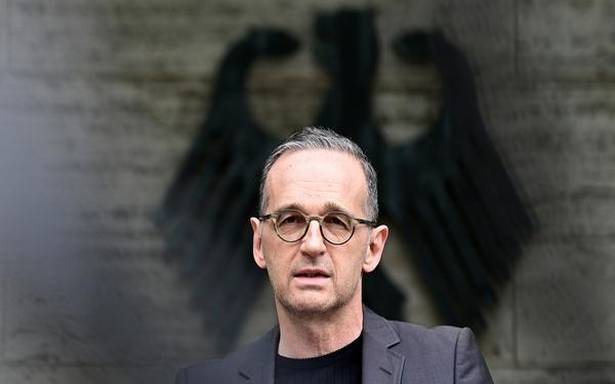The accord with Namibia announced Friday is the result of more than five years of talks on the events of 1904-1908, when Germany was the southern African country’s colonial ruler.
Germany has agreed to officially recognize the colonial-era killings of tens of thousands of people in Namibia as genocide and to spend a total of 1.1 billion euros ($1.3 billion), largely on development projects.
The accord with Namibia announced Friday is the result of more than five years of talks on the events of 1904-1908, when Germany was the southern African country’s colonial ruler.
Historians say German Gen. Lothar von Trotha, who was sent to what was then German South West Africa to put down an uprising by the Herero people in 1904, instructed his troops to wipe out the entire tribe. They say that about 65,000 Herero were killed and at least 10,000 Nama.
“In the light of Germany’s historical and moral responsibility, we will ask Namibia and the descendants of the victims for forgiveness,” German Foreign Minister Heiko Maas said in a statement.
“Our aim was and is to find a joint path to genuine reconciliation in remembrance of the victims,” he said. “That includes our naming the events of the German colonial era in today’s Namibia, and particularly the atrocities between 1904 and 1908, unsparingly and without euphemisms.”
“We will now officially call these events what they were from today’s perspective: a genocide.”
Germany says that representatives of the Herero and Nama were involved in the negotiations, though Berlin’s direct dealings have been with the Namibian government.
Talks between Germany and Namibia opened in 2015, more than a decade after a 2004 visit to Namibia in which then-Development Minister Heidemarie Wieczorek-Zeul offered Germany’s first apology for the killings, which she said were “what today would be labeled as genocide.”
Maas said that “as a gesture of recognition of the incalculable suffering,” Germany plans to support Namibia and the descendants of the victims with a 1.1 billion-euro “rebuilding and development” program in whose design and implementation “the communities affected by the genocide will take a decisive role.”
At the same time, he said that “legal claims to compensation cannot be derived from this.”
That reflects Germany’s position that the Genocide Convention of 1948 cannot be applied retroactively, and that its liability is political and moral rather than legal.
The projects Germany agreed to fund are expected to stretch over a 30-year period and will cover areas such as land reform, including land purchases, agriculture, rural infrastructure, water supply and vocational training. They will be separate from continuing development aid to Namibia.
The two countries’ foreign ministers are expected to sign the agreement, but there was no immediate announcement of when that will happen.
“We are thankful that these long-running negotiations on how to deal with this dark chapter of our joint history could be brought to a good conclusion for both sides,” Chancellor Angela Merkel’s spokesman, Steffen Seibert, told reporters in Berlin.
Germany gained control of the desert country in the 1880s and surrendered the territory to South Africa in 1915. Namibia gained independence in 1990.
In 2018, Germany returned more than a dozen skulls and other human remains taken from Namibia by colonial forces over a century earlier for pseudo-scientific racial experiments. They had been stored in German hospitals, museums and universities for decades.
Also ReadMay28_page 1.pdf
May28_page 2.pdf
Source: Read Full Article

